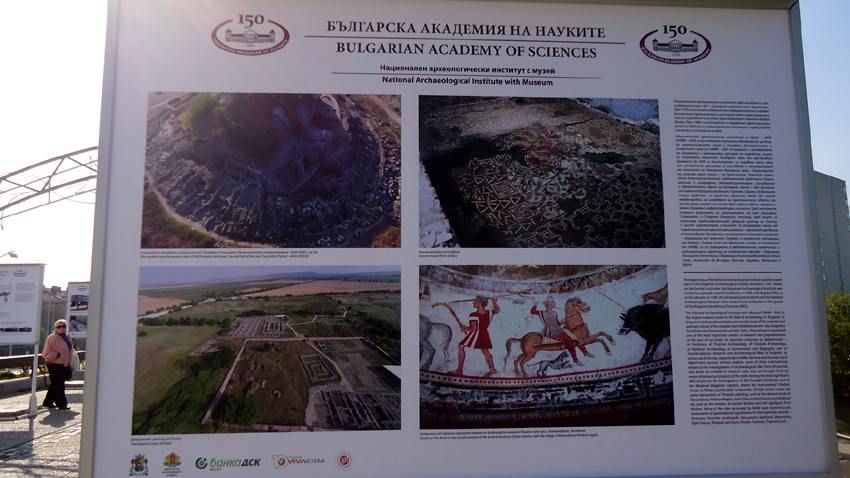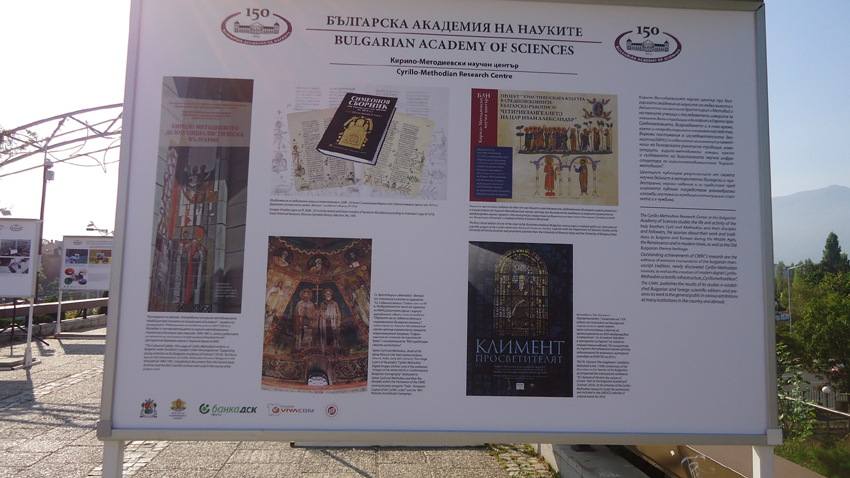The Bulgarian Academy of Sciences which is the oldest and most reputable scientific institution in Bulgaria celebrates its 150th anniversary. It emerged under the name Bulgarian learned Society in the Romanian town of Braila nine years before Bulgaria’s liberation from the Ottoman Rule and aimed to become a science center spreading enlightenment among Bulgarians, studying the Bulgarian history and life and refining the Bulgarian language. The patriotic cause was supported by national revival leaders such as Marin Drinov (Professor in Kharkov University), Vasil Drumev (Premier of the Principality of Bulgaria and Metropolitan of Tarnovo) and Gavril Krastevich (Governor General of Eastern Rumelia), as well as by many wealthy and enlightened Bulgarians and revolutionaries, including the Bulgarian Apostle of Freedom Vasil Levski.

Today, the Bulgarian Academy of Sciences has 42 institutes, 8 laboratories, a publishing house, a library and a scientific archive. A total of 2,600 scientists work at BAS.
In the beginning, things were more oriented towards the national revival period, the history, the language and the Bulgarian spirit, whereas after the liberation of Bulgaria from the Ottoman Rule, the Bulgarian Academy of Sciences played a significant role in the construction of the new Bulgaria, the President of BAS Academician Julian Revalski told Radio Bulgaria. Its members-public figures, statesmen, ministers, Prime Ministers, are among the people who not only built our country, but were among the people who supported the idea for establishment of the Sofia University Kliment Ohridski. That is why we must do our best to fulfill their covenant.

The number of scientists working at the BAS has been constantly decreasing in the recent years due to the insufficient financing allotted for scientific research. The share of young people employed at the academy is also low, because many young scientists choose to make a career abroad, instead of working for EUR 400 per month and facing the problem related to the shortage of laboratory materials. However, if the general public does not understand the benefits of science, we will never have good education, healthcare, national security and competitive economy, Academician Revalski underlined. Julian Revalski insists that the salaries of the scientists at BAS should see 20% increase, so the young people are motivated to stay and work at the academy. In about five years or so, the Bulgarian Academy of Sciences will lose 700-800 scientists for biological reasons, Academician Revalski adds.

On the eve of its anniversary, October 12, the Bulgarian Academy of Sciences opens the doors of its institutes and laboratories. It will try to popularize its activity with a series of events. The first event is the exhibition on the Lovers’ Bridge near the National Palace of Culture presenting photos with innovative solutions for the battery industry, 3D computer generated hologram images, counter pressure casting, prototype of photocatalytic air purifier, original equipment, research methods and actual projects. More from Academician Revalski:
At a Nano level we are developing polymeric materials used in the medicine and the production of new medicines. There are serious developments in the field of technology linked with Nano-coatings of materials. In the field of information and communication technologies braille displays helping people with visual impairments work with computers were developed. I would like to note that part of the institutes of the Bulgarian Academy of Sciences work for the preservation of the national identity and are of key significance for the Bulgarian state, its history, language, literature and study of art.

In the World Sight Day (October 8) leading experts will talk at the Bulgarian Academy of Sciences about the prevention and the treatment of vision-threatening diseases. On October 10 the first show pavilion with almost zero energy consumption will be presented at the Central Laboratory of Solar Energy and New Energy Sources. On October 12 the entrance to the Botanical Garden and the museums of the Bulgarian Academy of Sciences will be free of charge. On this day the academy will mark its 150th anniversary with a big concert at the National Palace of Culture.
English version: Kostadin Atanasov
Photos: Diana TsankovaDisputes in Croatia over sending military personnel to NATO mission in support of Ukraine NATO Acting Deputy Secretary General Boris Ruge visited Croatia to explain to local MPs about the Alliance's mission in support..
Konyovets village near Shumen is marking 160 years since the oldest stud farm in Bulgaria was set up. Celebrations are being organized on the farm on 1 November when officials from the Ministry of Agriculture and Food and of the State Fund..
The Professional Association of Robotics, Automation and Innovation s unites over 80 Bulgarian and international companies that have one global objective - to establish our country as a center for technology development . To achieve this dream,..
Two graduates of the Bulgarian School "Saints Cyril and Methodius" in Jordan presented their achievements at an event at their school "Hadi al Muhammadi"..
Radmila Sekerinska from North Macedonia appointed NATO Deputy Secretary General NATO Secretary General Mark Rutte has appointed Radmila Sekerinska..
1000 participants will take part in the first Burgas Half Marathon, which will take place this Sunday, 24 November. The event will bring together..

+359 2 9336 661
